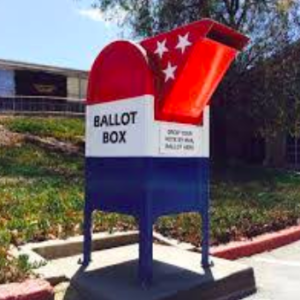Gov. Chris Sununu said Monday he would “not be comfortable at all” with an all vote-by-mail election this fall in response to the threat of coronavirus, a proposal New Hampshire Democrats have long promoted.
“No, I wouldn’t be comfortable with that at all for a variety of different reasons,” Sununu said when asked about using only mail-in ballots for September’s primary or the November general election. “We have a very robust absentee ballot system that allows for flexibility. More flexibility than anybody would actually need in terms of wanting or needing an absentee ballot and voting from home.
“So if the commission were to go beyond that, I would find it hard to understand any of the justifications for that given our system already allows for a lot of flexibility,” Sununu said.
Earlier in the day, Secretary of State Bill Gardner announced the formation of a six-member advisory committee to oversee how the state will spend the $3.2 million in federal CARES Act money New Hampshire received to address the challenges of voting in a coronavirus environment.
Democrats, both nationwide and in New Hampshire, have long supported a universal vote-by-mail system and believe the coronavirus crisis offers the opportunity to get it enacted.
New Hampshire Democratic Party chairman Ray Buckley, for example, is among 51 Democratic state party chairs calling for vote-by-mail, lowered voter ID standards and “allowing community organization to collect and deliver voted, sealed ballots,” a practice also known as “ballot harvesting” which has been linked to high-profile incidents of voter fraud.
Many of the party’s most progressive voting proposals are found in the “For The People” Act, co-sponsored by both Reps. Annie Kuster and Chris Pappas, and supported by state Sen. Tom Sherman, one of the six members of Gardner’s committee.
Sherman is such a strong supporter of the “For The People” Act that he sat down with fellow state Sen. Melanie Levesque to record a video message “in honor of the one-year anniversary of the House of Representatives’ passage of HR 1, also known as the For the People Act.”
Among other things, the act would mandate every state conduct no-fault absentee balloting — allowing everyone to vote by mail — and allowing individuals to vote without an ID if they sign a statement in which they claim they are who they say they are.
“It is critical that we expand access to voting by mail and absentee voting,” Sherman said in a recent op-ed.
When asked about Sununu’s statement, Sherman told NHJournal, “I am honored that the Secretary of State has appointed me to the Committee. Until we all meet, I think it would be premature for me to speculate on the best approach for New Hampshire. I look forward to working with the other committee members to make sure that the elections are adequately supported to ensure that they run smoothly.”
Sherman is just one vote on the committee, and Secretary Gardner has already shot down some of the more extreme ideas Democrats are attempting to advance. But the Sununu administration’s decision to allow the equivalent of no-fault absentee balloting in the two upcoming elections could open the door to a permanent vote-by-mail system in the future.
And if there isn’t an effective, widely available vaccine by the time municipal elections roll around in 2021 or even the midterms of 2022 (a very real possibility), the pressure will grow to join states like Oregon and Colorado and go to a permanent vote-by-mail system.
So far, Sununu says no.
“I don’t know what other states are doing with their election systems and — I don’t want to use the term ‘I don’t care’ — but you know we do things differently in New Hampshire,” Sununu said.
Other members of Gardner’s commission include:
- Bradford E. Cook, chairman, Ballot Law Commission;
- Rep. Barbara J. Griffin, R-Goffstown;
- Katherine M. Hanna, former legal counsel to Governor John Lynch;
- Kathy L. Seaver, Farmington town clerk for 41 years; past president, New Hampshire City and Town Clerks Association 2008-2009; and
- Alternative member Eugene Van Loan III

